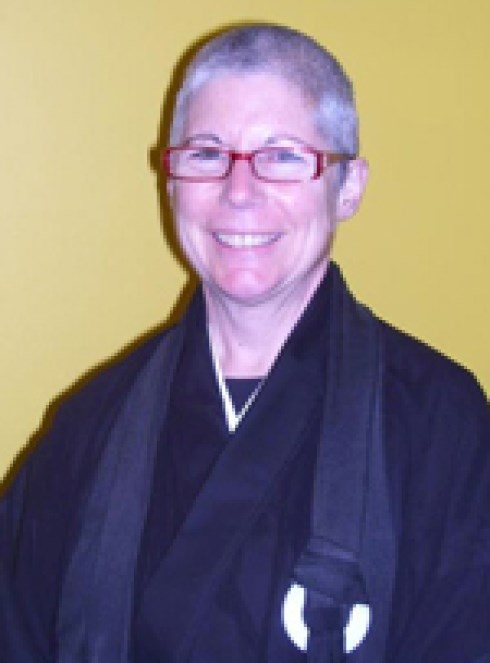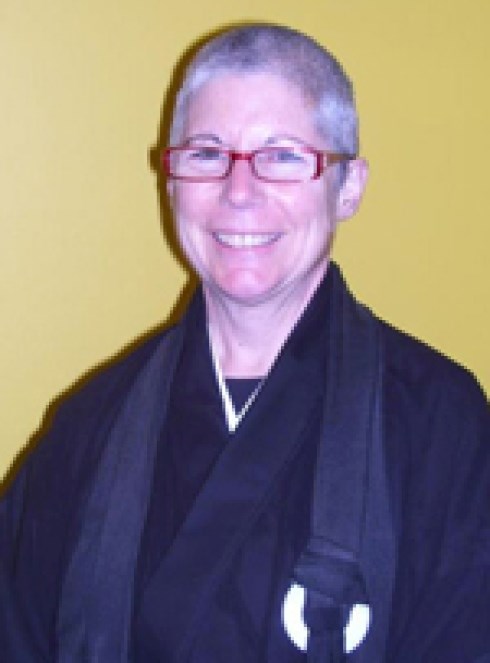As public opinion is focusing on the racism inherent in Canadian institutions, it may be useful to take a closer look at how one person, practising Zen meditation, is investigating her own inherited racist attitudes.
People come to meditation for many reasons, from stress to addictions, wanting a little peace for themselves, or wanting peace and sustainability for the whole world. These are the contemporary manifestations of the suffering that the Buddha sought to extinguish. Buddha taught that Life is suffering, suffering accumulates, there is an end to suffering, and there is a path to the end of suffering.
Since we’re not taught this end-of-suffering path in our early years, we develop our own work-arounds that seem to ease our lives. After skinning my knee or being hurt by my parents’ inexplicable (to younger me) anger, I armoured my heart a little. Later there are the difficulties of learning social skills in daycare or school, and the list goes on. Over time the heart becomes shielded.
Very early on we develop coping strategies to limit our suffering, but these mechanisms just continue on, un-reviewed into adult life, and the heart suffers. Sometimes we end up not being able to feel much of anything, and miss out on joy, fulfilment, peace, and interconnectedness.
Our natural ability to be nourished by the simple joys of life is squashed, and contentment-seeking and pain-avoidance systems take over. This is unconscious, but very easy to see if I try to deny myself the simplest pleasure, such as my music, or a snack. Or, on the other hand, I can try to make myself do some small difficult task, such as daily stretching or finishing a small project. This kind of investigation can be very revealing.
The combination of lack of awareness of our inner processes and deep hunger for fulfilment can lead to artificially boosting our own self-worth with the idea that we are better than others. Our culture presents us with a hierarchy of animals and plants in which humans are at the top, subdivided into a complex hierarchy based on arbitrary factors such as colour, sex, and family income. Our need to be better-than coupled with our society’s unfair structure, in turn, can lead to unconscious acts of bullying, sexism, racism, and other forms of oppressive behaviour.
As I investigated, I saw this dysfunctional logic: I’m a little better than you, so I can ignore your issues because they are not my problem. Since I’d turned a blind eye, I didn’t know about residential schools lasting into the 1990’s, I didn’t know of the lack of safe water, I didn’t know of the horrible failure of the justice system in the hundreds of cases of Missing and Murdered Indigenous Women and Girls. This is an inside view of the ‘Perfect Stranger’ phenomenon Indigenous activists speak of. This ‘not knowing’ has allowed serious injustices to continue.
I’m not proud to say I see this process in myself, my aunts, and my grandmothers, so as part of my Zen practice I’m leaning in to this difficult area, educating myself, and hopefully this little awakening will be of benefit to others. On the plus side, this inner revelation gives me an understanding of silent Canadian racism, and a deep commitment both to speak out about it, and to hear other people’s truths.
Zen invites us to wake up to these processes, to realize our profound interconnectedness. We can end the quiet objectification of ‘the other’ which leads to powerful injustices. As a country, we have the resources, and now, also a strong will to do so.
 Rev. Soshin McMurchyv is a white settler, a priest with Zenwest Buddhist Society, zenwest.ca, and serves as the Buddhist Chaplain with the University of Victoria Multifaith Services where she teaches meditation. She is grateful to her teacher Eshu, Osho, and to the writings of Rev Master Meiten and Rev Zenju Earthlyn Manuel.
Rev. Soshin McMurchyv is a white settler, a priest with Zenwest Buddhist Society, zenwest.ca, and serves as the Buddhist Chaplain with the University of Victoria Multifaith Services where she teaches meditation. She is grateful to her teacher Eshu, Osho, and to the writings of Rev Master Meiten and Rev Zenju Earthlyn Manuel.
You can read more articles from our interfaith blog, The Spiritual View, HERE


